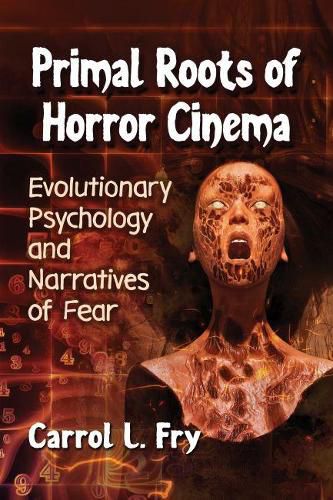Readings Newsletter
Become a Readings Member to make your shopping experience even easier.
Sign in or sign up for free!
You’re not far away from qualifying for FREE standard shipping within Australia
You’ve qualified for FREE standard shipping within Australia
The cart is loading…






This title is printed to order. This book may have been self-published. If so, we cannot guarantee the quality of the content. In the main most books will have gone through the editing process however some may not. We therefore suggest that you be aware of this before ordering this book. If in doubt check either the author or publisher’s details as we are unable to accept any returns unless they are faulty. Please contact us if you have any questions.
Why is the horror genre in film and literature so perennially popular? Why do we enjoy vicarious fear? The parallel fields of sociobiology and evolutionary psychology offer an approach to unraveling this conundrum. A new generation of Darwinists expands on the hypothesis that evolution created our physical forms. They posit that behaviors from our primal ancestors that favored survival and adaptation through natural selection would have been incorporated into our genetic heritage. Echoes from their adaptation would at least influence, but not control, our actions, decisions and thoughts today.
Evolutionary critics believe that whispers of adaptive behavior influence our taste in film and literature to create enduring narratives. Primal Dreams, Primal Screams explores the impact of six primal narratives that recur in the horror genre to create its enduring appeal: territoriality, tribalism, fear of genetic assimilation, mating rituals, fear of the predator and distrust or fear of the Other.
Evolutionary criticism tells us much about our tastes in the arts. But an understanding of how primal narratives influence our response to films or novels that enact them also leads us to a new understanding of human nature and how the adaptive strategies of our ancestors can create dysfunction in a modern setting.
$9.00 standard shipping within Australia
FREE standard shipping within Australia for orders over $100.00
Express & International shipping calculated at checkout
This title is printed to order. This book may have been self-published. If so, we cannot guarantee the quality of the content. In the main most books will have gone through the editing process however some may not. We therefore suggest that you be aware of this before ordering this book. If in doubt check either the author or publisher’s details as we are unable to accept any returns unless they are faulty. Please contact us if you have any questions.
Why is the horror genre in film and literature so perennially popular? Why do we enjoy vicarious fear? The parallel fields of sociobiology and evolutionary psychology offer an approach to unraveling this conundrum. A new generation of Darwinists expands on the hypothesis that evolution created our physical forms. They posit that behaviors from our primal ancestors that favored survival and adaptation through natural selection would have been incorporated into our genetic heritage. Echoes from their adaptation would at least influence, but not control, our actions, decisions and thoughts today.
Evolutionary critics believe that whispers of adaptive behavior influence our taste in film and literature to create enduring narratives. Primal Dreams, Primal Screams explores the impact of six primal narratives that recur in the horror genre to create its enduring appeal: territoriality, tribalism, fear of genetic assimilation, mating rituals, fear of the predator and distrust or fear of the Other.
Evolutionary criticism tells us much about our tastes in the arts. But an understanding of how primal narratives influence our response to films or novels that enact them also leads us to a new understanding of human nature and how the adaptive strategies of our ancestors can create dysfunction in a modern setting.